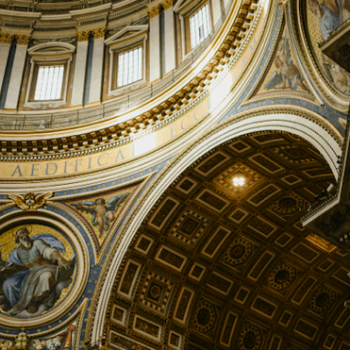Cynthia P. Schneider, Ph.D. - June 5, 2009
 President Barak Obama set himself an all but impossible task: to address Muslim populations from places as diverse as Detroit, Darfur, Delhi, and Doha. He found a way to connect with Muslims all over the world by speaking to them with respect. The President showed his respect both by quoting the Quran, and by speaking straight and even-handedly-praising accomplishments of Muslims past and present, but also holding Muslim populations and leaders accountable. Respect is an intangible and greatly under-estimated element in international relations.
President Barak Obama set himself an all but impossible task: to address Muslim populations from places as diverse as Detroit, Darfur, Delhi, and Doha. He found a way to connect with Muslims all over the world by speaking to them with respect. The President showed his respect both by quoting the Quran, and by speaking straight and even-handedly-praising accomplishments of Muslims past and present, but also holding Muslim populations and leaders accountable. Respect is an intangible and greatly under-estimated element in international relations.
According to the landmark Gallup poll (Who Speaks for Islam, Gallup Press, 2008), Muslims worldwide considered lack of respect and understanding of Islam the most significant factor driving the divide between the Muslim world and the west. While one speech cannot change political realities, it can shift the underlying opinions that shape them.
The "Muslim world" construct-imperfect but convenient-reflects a unity which exists mainly in the animosity of Muslims all over the world to the politics and rhetoric of George Bush. President Obama's frank, direct, and above all, respectful tone, as well as his ease in discussing politics and religion could not have differed more dramatically from his predecessor. He deftly called leaders in the Muslim world out for "advocating democracy only when they're out of power," urging "power through consent, not coercion." Obama spoke truth to power, in the presence of Egypt's autocratic leaser Hosni Mubarak, but did not resort to insult. (Remember when Columbia President Lee Bollinger managed to do the impossible-earn sympathy for Iran's Ahmadinejad-when he insulted him; Obama did not make the same mistake.) In a promising sign, Barbara Ibrahim, wife of exiled Egyptian dissident Saad Eddin Ibrahim, and Ayman Nour, Mubarak's political rival who was recently released from prison, both were seated in the front row of Obama's audience. Time will tell if Saad Eddin Ibrahim will be allowed to return to Egypt. Let's hope Mubarak takes Obama's words to heart.
More Jewish, Christian, Muslim perspectives on Obama's Speech
For all the positive aspects of President's Obama's speech-and there are many more than I have referenced here, such as his judicious approach to the Israeli-Palestinian conflict, his definition of Iraq as a "war of choice," his statement that "Islam is a part of America," and his attention to Pakistan and Afghanistan-he made one error: he equated people with politics. Many Americans did not appreciate being associated with George Bush's policies; why should Muslims feel any differently? It is surprising that the same President who delivered the brilliant Nohruz speech to the people of Iran only discussed Iran in terms of its nuclear ambitions. What about the strong connection that so many of Iran's youth (70% of the population) feel towards America and its culture? For example, hip hop thrives throughout the Muslim world, but especially in Iran and Palestine, where its language of dissent resonates. Blogs and social networking sites connect people, especially youth, living in Muslim majority regions with Americans. People throughout the Muslim world have long been able to separate American people and culture from policies. This has provided a reservoir of good will and a potential for strengthening ties, especially among young people, that the President and the programs he proposes should tap.
At the end of his speech the President offered an impressive list of initiatives in the areas of development, education, science and technology, and business, including "a new online network so a young person in Kansas can communicate instantly with a young person in Cairo." In this case, and possibly others, there is no need to re-invent the wheel. This type of social networking exists already. The challenge for the White House will be to find and leverage extant programs and organizations that can help realize the President's objectives.
The President identified many key points of common ground between America and Islam, but he missed one. The core belief of the Founding Fathers that the "pen is mightier than the sword" echoes a hadith, or saying, of the Prophet Mohammed, "The ink of the scholar is more precious than the blood of the martyr." Hopefully, a hallmark of the "new beginning" will be a greater emphasis by both sides on the power of the "pen" rather than that of the "sword."
Dr. Cynthia P. Schneider is Distinguished Professor in the Practice of Diplomacy at Georgetown University. She is Senior Non-Resident Fellow at the Brookings Institution and former U.S. Ambassador to the Netherlands.
1/1/2000 5:00:00 AM




